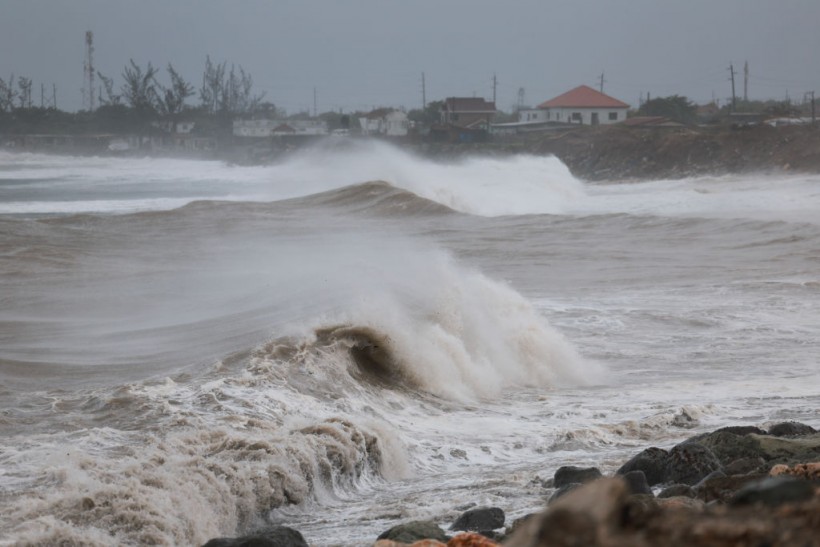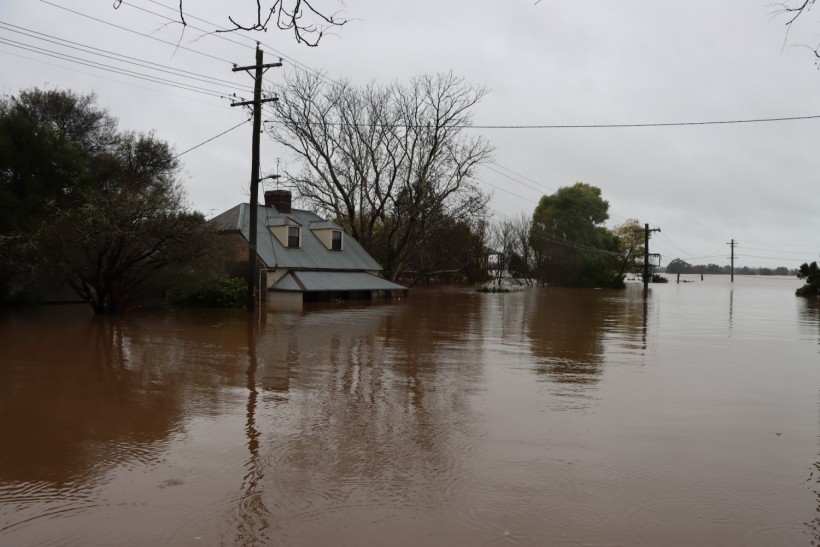[ad_1]
Hurricane Beryl in recent days has wreaked havoc across the Caribbean region where it brought hurricane-force winds and caused flooding and landslides due to heavy rain, resulting in multiple deaths. Beryl is the first hurricane of the 2024 Atlantic hurricane season and is considered by meteorologists as the earliest storm in recorded history. Recently, the storm made landfall in Mexico’s Yucatan Peninsula region.
According to weather forecast updates as of Friday, July 5, the National Hurricane Center (NHC) reported that Hurricane Beryl intensified into a Category 3 storm with a maximum sustained winds of 85 miles per hour. The Atlantic hurricane is also now heading towards southern Texas, where it is expected to make landfall early next week with dangerous storm surges, rip currents, and heavy rainfall.
Hurricane Beryl Update
![Hurricane Beryl Update: Storm Strengthens to Category 3 with 85 MPH Winds, Now Heads Toward Southern Texas Bringing Dangerous Storm Surge, Heavy Rainfall [NHC] Hurricane Beryl Update: Storm Strengthens to Category 3 with 85 MPH Winds, Now Heads Toward Southern Texas Bringing Dangerous Storm Surge, Heavy Rainfall [NHC]](https://1471793142.rsc.cdn77.org/data/images/full/71078/hurricane-beryl-update-storm-strengthens-to-category-3-with-85-mph-winds-now-heads-toward-southern-texas-bringing-dangerous-storm-surge-heavy-rainfall-nhc.jpg?w=820)
(Photo : Photo by Joe Raedle/Getty Images)
In its latest weather forecast, the NHC at 10:00 a.m. CDT (local time) on Friday warned that Hurricane Beryl has intensified into a Category 3 again as it made landfall in Mexico recently. Due to the proximity of Beryl with Central America, hurricane-force winds, dangerous storms, and heavy rainfall are strengthening across the Yucatan Peninsula; which is within the hurricane warning area.
The NHC, responsible for monitoring and forecasting tropical weather systems, also warned residents in the region to take shelter during the passage of the life-threatening hurricane conditions. Other weather hazards include coastal flooding or erosion caused by large waves along coastal areas. The US Government weather agency said these hazards will occur in northeast Mexico and southern Texas late this weekend.
Currently, Beryl is located over the Yucatan Peninsula and is moving in a west-northwest pattern. Based on projections the hurricane will reach southern Texas between Sunday and Tuesday, July 7 to July 9. The tropical weather system is projected to move further inland in Texas by Wednesday, July 8, next week. This means that the surrounding states of Texas can also experience the weather hazards mentioned earlier.
Also Read: Caribbean Islands Brace as Hurricane Beryl Intensifies to a Category 5 Storm
Beryl Impacts the Caribbean
Hurricane Beryl left a trail of destruction after it passed the Caribbean in recent days, killing at least 11 people. So far, widespread infrastructural damage, fallen trees, flash flooding, and damaging winds have been reported across Jamaica, Saint Vincent and the Grenadines, Grenada, and northern Venezuela.
The Atlantic hurricane season spans from June 1 to November 30 each year. However, the formation of tropical storms or hurricanes over the Atlantic Ocean can still occur outside this period, especially during May. Over the past decade, the United States recorded powerful Atlantic hurricanes which led to widespread damage and even human fatalities, especially in the southern tier of the nation.
In May 2024, the National Oceanic and Atmospheric Administration (NOAA) predicted an above-average 2024 Atlantic hurricane season, indicating that there is a chance for an increase in the frequency and intensity of hurricanes during the said period until November 2024.
Related Article: Deadly Hurricane Developments: Beryl Expected to Make Landfall in Mexico
© 2024 NatureWorldNews.com All rights reserved. Do not reproduce without permission.
[ad_2]




